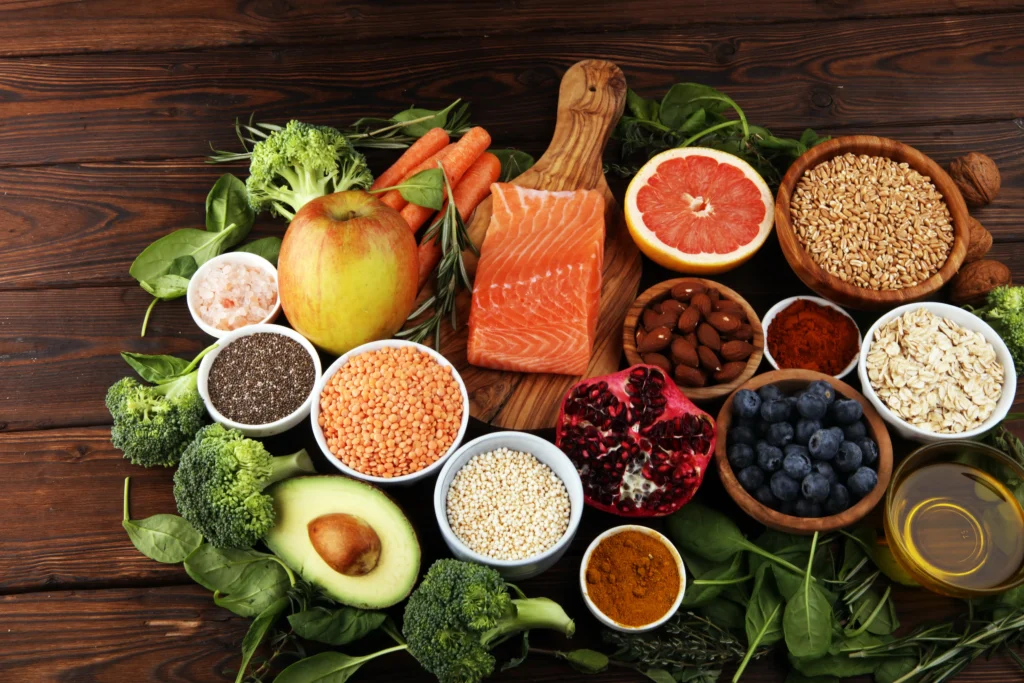Celebrating Men’s Wellbeing this National Men’s Health Month & International Men’s Health Week
 The week of June 13 – June 19 marks the 28th anniversary of International Men’s Health Week, which is celebrated annually during National Men’s Health Month and coincides with Father’s Day in the States. Observed worldwide, Men’s Health Week honors the importance of men’s health care, heightens awareness of preventable health problems, and encourages the pursuit and adoption of a healthy lifestyle.
The week of June 13 – June 19 marks the 28th anniversary of International Men’s Health Week, which is celebrated annually during National Men’s Health Month and coincides with Father’s Day in the States. Observed worldwide, Men’s Health Week honors the importance of men’s health care, heightens awareness of preventable health problems, and encourages the pursuit and adoption of a healthy lifestyle.
Men’s Health Crisis
In the United States, men are dying younger and in greater numbers than women. On average, men live five years less than women, and die at a higher rate from the leading causes of death including cancer, heart disease, diabetes, and suicide. Men also tend to be less healthy than women—engaging in more dangerous activities and consuming more tobacco and alcohol.
This health gap is due, in part, from the fact that men are less likely to adopt preventative health measures. In fact, men make half as many preventative physician visits than women do, and are less likely to have health insurance. A 2019 online survey conducted by the Cleveland Clinic found that 82% of men try to stay healthy to live longer for the friends and family relying on them, but only 50% of those men engage in preventative care. In fact, the survey found that 72% of men would rather do a household chore than go to their doctor.

The Cleveland Clinic survey also found that of the men who indicated that they take their health seriously, 20% admitted that they are not always honest with their doctor. The top reasons for this dishonesty were that men felt embarrassed (46%); they knew something was wrong but weren’t ready to face the diagnosis or would rather not know if they had any health issues (37%); and they didn’t want to hear from their doctor that they needed to change their diet or lifestyle (36%). Compounding men’s comfort with admitting a health problem is that, based on survey data, 41% of men were told as children that men don’t complain about health issues.
Bridging the Men’s Health Gap
Here at Anodyne Pain & Wellness Solutions, we applaud movements like International Men’s Health Week that are bridging the men’s health gap by bringing awareness to simple steps men can take to support a healthy mind and body. This June, we invite you to give the men in your life the gift of health, and encourage men to take charge of their well-being.
- Screenings: Make time for your health with wellness check-ups and preventative screenings. According to the Cleveland Clinic survey, 61% of men said they would be more likely to go to their annual check-up if seeing their doctor was more convenient. At Anodyne, we work to make screenings and check-ups easy by offering flexible scheduling, virtual visits, and a team of doctors and specialists all under the same roof.
- Fitness: Dust off your fitness goals and get physical. Scientific research reveals that regular physical activity is one of the most advantageous things you can do to improve your health. Physical activity has tremendous benefits for men of all ages and fitness levels, and it doesn’t take long to reap the benefits. In fact, a single session of moderate to vigorous physical activity yields immediate benefits—improving quality of sleep; reducing feelings of anxiety; sharpening focus; and reducing blood pressure. This June, get out and move whenever and however best suits your lifestyle. Experts recommend men aim for at least 150 minutes of moderate intensity aerobic activity—any activity that gets your heart beating faster. Men also should aim to engage in muscle-strengthening exercises that work major muscle groups at least two days each week.

- Nutrition: Build out a nutrient-rich plate to fuel your day and fight disease. Include nutrientrich foods like fruits, vegetables, and legumes high in vitamins and minerals, and limit starchy, fatty, and sugary foods high in empty calories—calories that don’t have any added nutritional value. For optimal energy and disease prevention, men should eat whole grains, which are high in fiber—helping to stave hunger and prevent specific cancers such as colon and prostate cancers.
- Emotional Health: Don’t forget that your emotional health is just as important as your physical health. Speaking up and seeking support is a sign of strength. More than 6 million men suffer from depression each year, but these cases regularly go undiagnosed. Men are also 4 times as likely to commit suicide than women, but less likely to seek help due to social norms, a reluctance to talk, or the downplaying of symptoms.
To learn more about how Anodyne’s team of doctors and specialists can help you take charge of your physical and mental health, visit https://anodynepain.com/ today.
Related Articles
Whether you’re struggling to diagnose a chronic pain condition or you’re pursuing wellness treatments to stay healthy and feel great, we’re here to support you at every step of your health care journey.


